AT VARIOUS TIMES IN history colonies of Jews have gone to China and lived there. The city of Kaifeng, in the province of Honan, was a center for them. In China they have never been persecuted, and if they have suffered hardships, these were only the hardships of life in the community where they were.
In its basis, therefore, this novel may be said to be historically true, although the characters, with unimportant exceptions, are the creatures of my imagination. The story takes place at the period, about a century ago, when the Chinese had accepted the Jews, and when, indeed, most Jews had come to think of themselves as Chinese. Today even the memory of their origin is gone. They are Chinese.


The Jews of China 10001932
Between 200 and 1000 A.D. many Jewish traders from Turkestan and refugees from Persia had settled in China.
884 Revolt of Jewish and Muslim merchants. Many massacred.
 Towns which probably had small Jewish communities by 1200 A.D. Many of these had certainly been founded over 500 years earlier. All but Kaifeng had disappeared by 1650.
Towns which probably had small Jewish communities by 1200 A.D. Many of these had certainly been founded over 500 years earlier. All but Kaifeng had disappeared by 1650.
In 1286, Marco Polo wrote of the strong commercial and political influences of the Jews in China.
By 1890 the only Jews left who still recognized their Judia nsm were 200 families at Kaifeng.
During the past forty or fifty years our religion has been but imperfectly transmitted and although its religious writings still exists, there is none who understands as much as one work of them. It has been our desire to repair the synagogue and again to procure ministers to serve in it, but poverty prevented us.
Letter from the Jews of Kaifeng to the British Consul at Amoy, 1850
THE JEWS OF KAIFENG
1163 Kaifeng synagogue built.
1427 Jewish officials organize famine relief.
1642 Jews active in the defence of the town against bandits.
1663 Restoration of the synagogue.
1850 Jews appeal to British Consul at Amoy.
1914 Site of the synagogue and cemetery bought by Canadian Church of England Mission.
1932 Jews photographed by an American traveller.
IT WAS SPRING IN the city of Kaifeng, a late spring in the northern Chinese province of Honan. Behind the high city walls the peach trees, planted in courtyards, bloomed earlier than they did upon the farms spreading over the level plains around the moat. Yet even in such shelter the peach blossoms were still only rosy buds at Passover.
Within the courts of the house of Ezra ben Israel the peach blossoms had been cut several days early and had been forced to bloom in time for the feast. Each spring Peony, the Chinese bondmaid, made it her task to provide thus for the branches of flowers that stood against the walls of the great hall. Each year Ezra, her master, and Madame Ezra, her mistress, took notice of what she had done. Knowing how cold the spring had been this year and how long the dusty northwest winds had blown upon the city, they had given her special praise when they entered the great hall this night for the feast.
See what magic our little Peony has wrought this Passover, Ezra had said, his plump hand gesturing toward the flowers.
Madame Ezra had paused to admire. Her impetuous look grew kind. Very pretty, my child, she had said to Peony.
Peony had remained properly silent, her small hands folded above her flowing sleeves. Davids eyes she met and avoided as he smiled, but Leahs warm smile she accepted, answering it with a small quiver of her lips. The old rabbi had given no sign. He was blind and so he saw nothing. As for Aaron, his son, Peony did not look at him.
They took their seats at the ample round table that had been placed in the middle of the hall, and Peony began to direct the serving of the food in her noiseless graceful fashion. Four menservants obeyed her, and Wang Ma, the elder woman servant, poured the tea.
As long as she could remember, Peony had watched this evening feast in early spring in the house of Ezra. She had directed the placing of every dish and utensil upon the table and the servants had obeyed her because she knew, as well as though she had been a daughter in the house, exactly where each dish was to be found and each placed. The dishes were kept the year round, unused except for this night before Passover. The silver spoons and chopsticks, the great seven-branched candlesticks, all were shining in the light of the lanterns hung from the high red beams. Upon a vast silver tray she herself had placed the symbols she did not understand, but which each year she prepared, a roasted egg, bitter herbs, apples, nuts, and wine. They were curiosities of a foreign religion.
But the whole day was a strange one in this unheeding Chinese city. Although Peony knew the rites well, each spring she wondered at them again. The search through the house for bits of leavened bread! Ezra, the master, had made the search this morning as he always did, laughing as he went carelessly from spot to spot, and asking her if that were all. Madame Ezra used always to hide the bits of leavened bread for him to find, but now for several years she had let Peony do it, and Ezra had commanded her to count the bits so that he would know when he was finished. He made a joke of it, as though he were somewhat ashamed before the servants. When Peony and David were children, they had laughed immoderately at the search and had joined in it with merriment, pointing out each crumb of the forbidden bread. But then she had not known that she was only a bondmaid.
Now she knew. She stood quietly watchful, as the feast proceeded. Each person at the table was known to her in some fashion. David she knew best. For Davids sake she had been bought in a year of famine, when the Yellow River had burst its dikes and had swept over the low-lying land. She had been too young to remember that sale of herself. Try as she might, she could remember no face before Davids face. He was her first memory, a gay boy, two years older than she, always much taller, much stronger, so that instinctively she turned to him and depended upon him. In those days she had told him all her little thoughts and sorrows, and it had been a habit hard to break. Yet her own wisdom had taught her that it must be broken. It was not sensible to think that the bond between two children could continue beyond childhood, not when one was master and the other bondmaid.
She did not repine, knowing herself fortunate in this kindly Jewish household. Ezra ben Israel, the head of the house, was a cheerful, stout-bodied merchant. Did he cut his full beard, Peony often thought, he would have looked Chinese, for he had had a Chinese mother. This was a grief to Madame Ezra, and so none spoke of it. She took comfort in the knowledge that David, her son, looked like her rather than his father, and she was fond of declaring, indeed, that David was most like her own father, for whom she had named him. All the house feared Madame Ezra not a little, even while each depended upon her for some private good, for her great kindness was likely to be undone at any moment by a sudden temper. She was a woman nearing fifty years of age, tall and large, handsome if one did not dislike a high nose and bright color. With all her warmth, she had also certain rigidities of belief and habit that could not be shaken. Thus, as usual on the Passover feast, Madame Ezra had invited the Rabbi and his two children, Aaron and Leah. Aaron was a pale secretive youth of seventeen, whom Peony despised for his pale splotched face and his corruption. Whether his family or Ezras house knew of his evil deeds she did not know, and it was beneath her to inquire. Perhaps none of the Seven Surnames and Eight Families, as the Jews were called in Kaifeng, knew all that the Rabbis son did, and the Chinese were too kind to tell them.

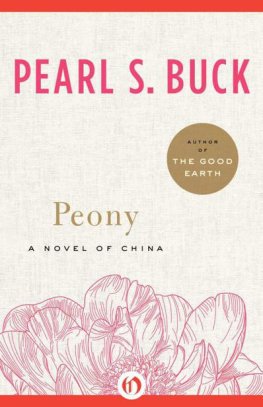
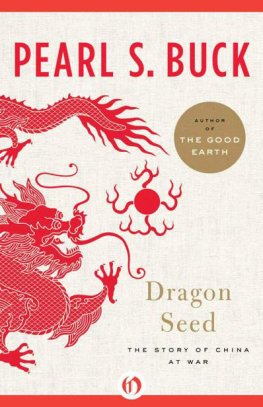
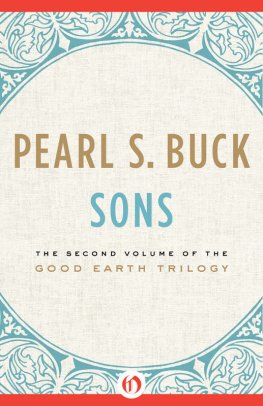
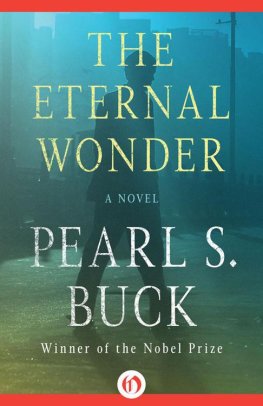
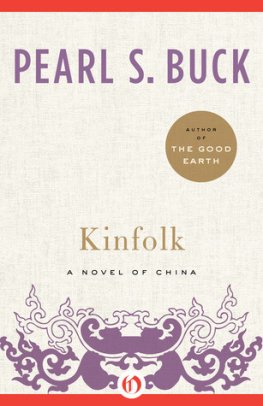
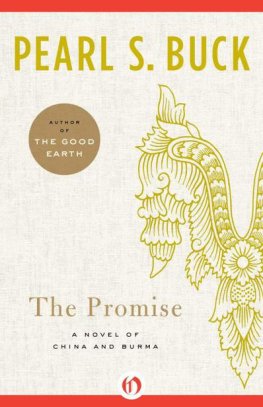
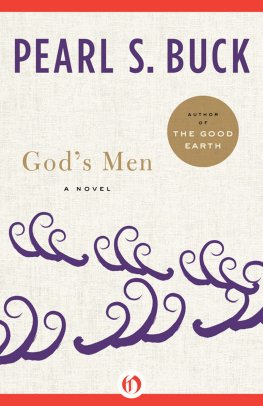
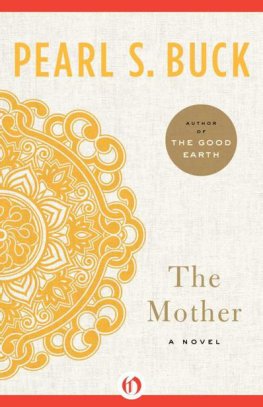
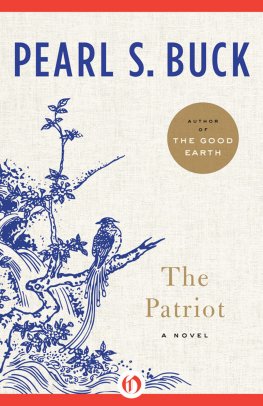
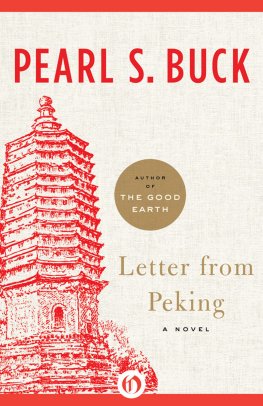
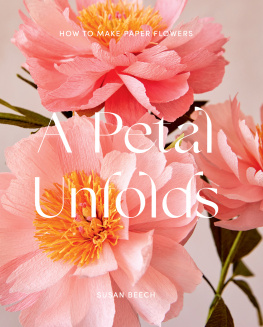
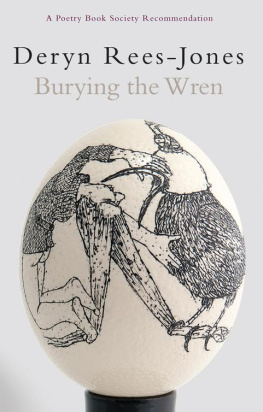
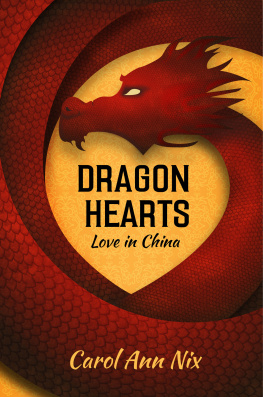
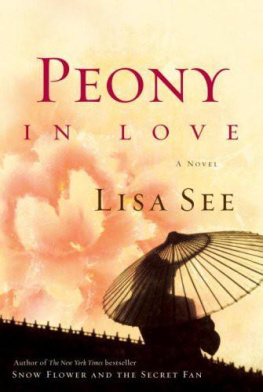
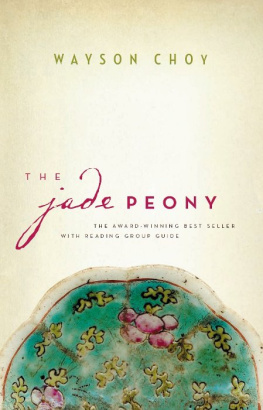
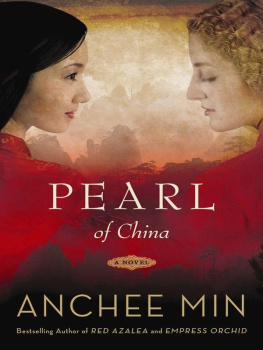


 Towns which probably had small Jewish communities by 1200 A.D. Many of these had certainly been founded over 500 years earlier. All but Kaifeng had disappeared by 1650.
Towns which probably had small Jewish communities by 1200 A.D. Many of these had certainly been founded over 500 years earlier. All but Kaifeng had disappeared by 1650.